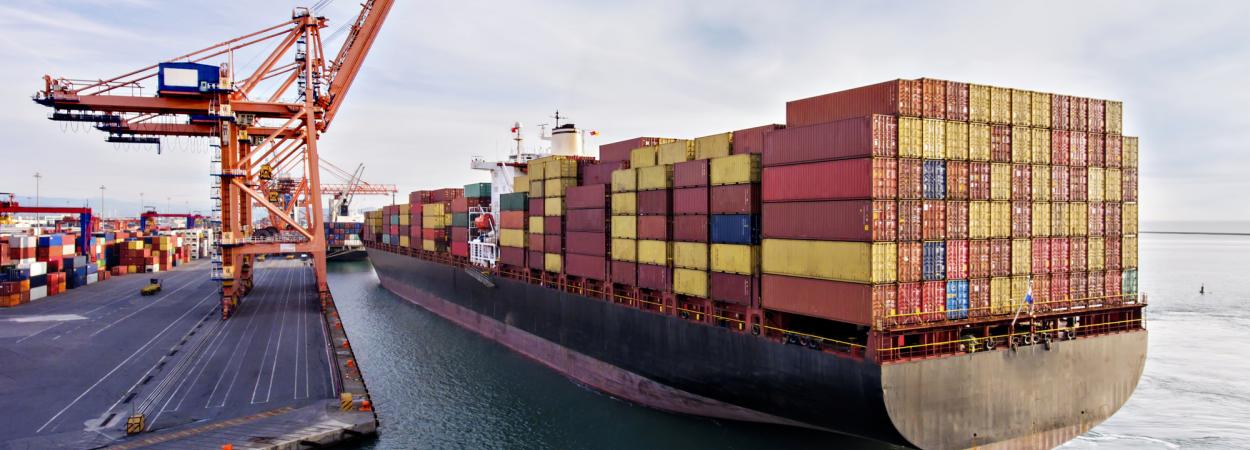AdC launches an in-depth investigation into the acquisition of Sotagus – Terminal de Contentores de Santa Apolónia

Press Release 13/2024
June 18, 2024
The Portuguese Competition Authority (AdC) has launched an in-depth investigation into the acquisition by Yilport Iberia, S.A. (Yilport) and GS Marítima, Lda. (Grupo Sousa) of joint control over Sotagus – Terminal de Contentores de Santa Apolónia, S.A. (Sotagus).
The AdC has decided to initiate this in-depth investigation because, based on the information gathered so far, it cannot be excluded that the mentioned merger may result in significant impediments to effective competition in the national market or a substantial part of it.
Companies Involved
Yilport is a company operating in the port and maritime transport sector, particularly in container handling at port terminals. It operates the container terminals in Leixões, as well as the Liscont and Sotagus terminals in Lisbon, and the Sadoport and Tersado terminals in Setúbal, among others.
Grupo Sousa owns a range of shipping companies, port operation and trucking companies, shipping agents and tugboats, freight forwarders, and other companies in the natural gas logistics, energy production, and tourism sectors. Specifically relevant to this merger, Grupo Sousa operates maritime transport between Mainland Portugal and the Autonomous Regions, as well as connections to some ports in West Africa.
Sotagus is a company currently solely controlled by Yilport. Under a concession agreement with the Lisbon Port Authority, Sotagus operates the Santa Apolónia port terminal until the end of February 2026, engaging in cargo handling (containers and break bulk) and ancillary activities.
Market and Assessment
The merger has a vertical nature, involving companies operating at different levels of the port cargo handling and maritime transport chain.
As a result of the investigative actions carried out to date, the AdC believes that the merger may generate a range of vertical effects to the customers of commercial or maritime transport shipping companies, and indirectly, to final or intermediate consumers.
In particular, the AdC is seeking to assess the risk that Grupo Sousa may prevent or hinder access of competing shipping companies to the Sotagus terminal, with potential impact on the competitive capacity of these companies and, consequently, the competitive conditions of maritime connections operated by Grupo Sousa.
Additionally, the Phase I investigation wasn’t enough to completely rule out the risk that the operation may impact the competitive capacity of terminals competing with Sotagus in the Lisbon port, mainly the Lisbon Multipurpose Terminal (TML), by diverting cargo currently operated by Grupo Sousa at TML to the Sotagus terminal.
Finally, there is also a risk that the merger could produce restrictive effects on competition for the market, namely regarding potential competition conditions in future public tenders for concessions of terminals in the Eastern Port Zone of Lisbon, and specifically, the future concession for the terminal currently operated by Sotagus.
The Decision
By its nature, this decision does not constitute a final decision on the procedure.
The AdC decides to launch an in-depth investigation into the analysis of mergers when complementary actions are deemed necessary.
Under the Competition Law, following the in-depth investigation, the AdC may decide to:
• Not oppose the business transaction if it concludes that the concentration operation, as notified or following amendments introduced by Yilport and Grupo Sousa (i.e., so-called commitments or remedies), is not likely to create significant impediments to competition in the relevant markets; or
• Prohibit the business transaction if it concludes that the concentration operation is likely to create significant impediments to competition in the relevant markets, with harm to intermediate and/or final users, who constitute the demand in these markets.



